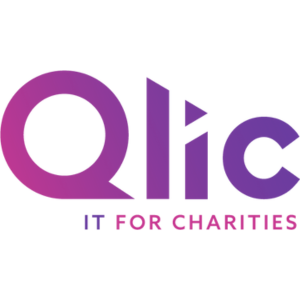Insights
INSIGHTS
All Topics
My Account
How charities can plan for the future
01 Sep 2021by Ian Allsop
Experts from Sage have developed a list of actions to guide charities through the process of change assessment
Charities have faced an unprecedented period of change and COVID-19 will continue to have an impact upon operations for many years.
The rapid move into the first lockdown meant charities had to quickly adapt to a new way of working. Access to key financial information was one of the most important factors in determining how organisations initially reacted to the pandemic.
In this article, we outline key steps that a charity might want to take to prepare for future changes in their operating environment and help inform decisions when change arrives.
Change management can be defined as a structured approach put in place to ensure that transitions are handled smoothly. A change management process ensures that charities are set up to benefit from the long-term effects of change. A key component of this is assessing the impact of changes.
So how should an organisation go about assessing and reacting to changes? What conclusions can they draw from reporting, and how can they use this information to manage change and make both strategic and operational decisions? Here is a ten-point list that will help you make the right decisions.
-
Understanding your organisation’s purpose can help you plan strategy
- What is the aim of your charity?
- What are your objectives?
- What is the life of your organisation or project?
Having clarity of the context of financial modelling and decision-making is vital before any change assessment is undertaken. Financial sustainability should not be a means to an end.
-
Draw up a list of questions to answer when considering financial sustainability
This will help you to determine what information is required.
- Are you operating within your means?
- How certain can you be about your financial future?
- How secure is your income?
- How predictable is your income?
- How diverse is your income?
- Can you easily tell where money is spent?
- Does the balance of spending reflect your strategy and stated priorities?
- Are there enough reserves for a rainy day?
- Is any debt you have currently manageable?
-
Find out what information you have
- Can you easily access key information?
- Is it enough to assess sustainability and impact?
- As well as historic data in terms of actual costs and incomes, what will you need to make future forecasts, and undertake scenario planning and modelling?
-
Evaluate the tools and resources you have available.
- Is your finance solution capable of analysing the information you have?
- Can it provide future information in a timely manner to support the change process?
- Who is doing the assessment?
- Have they got the time and skills needed?
-
Determine your key risks
Develop realistic scenarios of what you might need to react to. This could include:
- reductions (or increases) in income across all streams
- unexpected costs, such as costs on structural repairs to key properties
- larger than expected bills – what will happen if it isn’t paid on time?
- imminent legislation or regulations to comply with
-
Break down the impact assessment of these scenarios into separate blocks
While ultimately change management is about assessing the impact on an organisation as a whole, it involves constructing an understanding of how different areas of your organisation combine together.
Identify the building blocks required to assess overall impact, including the impact on cost structures, cashflow, individual initiatives, staff and beneficiaries.
-
Consider who needs to see the information once impact assessment has been undertaken and how it should be presented
For some people, only presenting numerical data may not be appropriate. For example, not all trustees have the financial expertise required to evaluate such information.
Consider contextualising examples from a leadership perspective and offering a more descriptive explanation of the scenarios being assessed.
-
Decide who will have responsibility for implementing change, and for acting upon decisions made
It is vital to assign responsibility for key actions within the organisation. This should then be supported with clear progress monitoring and reporting to ensure that actions remain on plan and any issues are reviewed and reacted to in a timely manner.
-
Focus on what is important
You will probably have a lot of financial information. Be reasonable and proportionate – you can’t measure, assess, analyse, and predict everything.
-
View change in a positive light
Change is scary. It can provoke inherent caution. But change management isn’t just about mitigating risk. Rather than just focusing on doomsday scenarios, it should be seized as an opportunity to operate more strategically, build infrastructure, and invest in technology.
Bear in mind the goals of recovery, resilience, and positivity. To build on opportunities with confidence, senior management needs to feel it is reliably making decisions based on sound financial data and change assessment.
Charities want to do their very best and be successful. For this they need to understand what they are trying to achieve, and what they can do to improve performance. Being prepared can help a charity deal with change when it happens.
Preparedness can also enable the organisation to focus on what it is doing now, and what it needs to do an ongoing basis to meet its strategic objectives, enjoy financial sustainability, and deliver impact.
Find more resources
Find more charity finance resources at the NPO Success Hub
More on this topic
Recommended Products
Our Events
Charity Digital Academy
Our courses aim, in just three hours, to enhance soft skills and hard skills, boost your knowledge of finance and artificial intelligence, and supercharge your digital capabilities. Check out some of the incredible options by clicking here.















